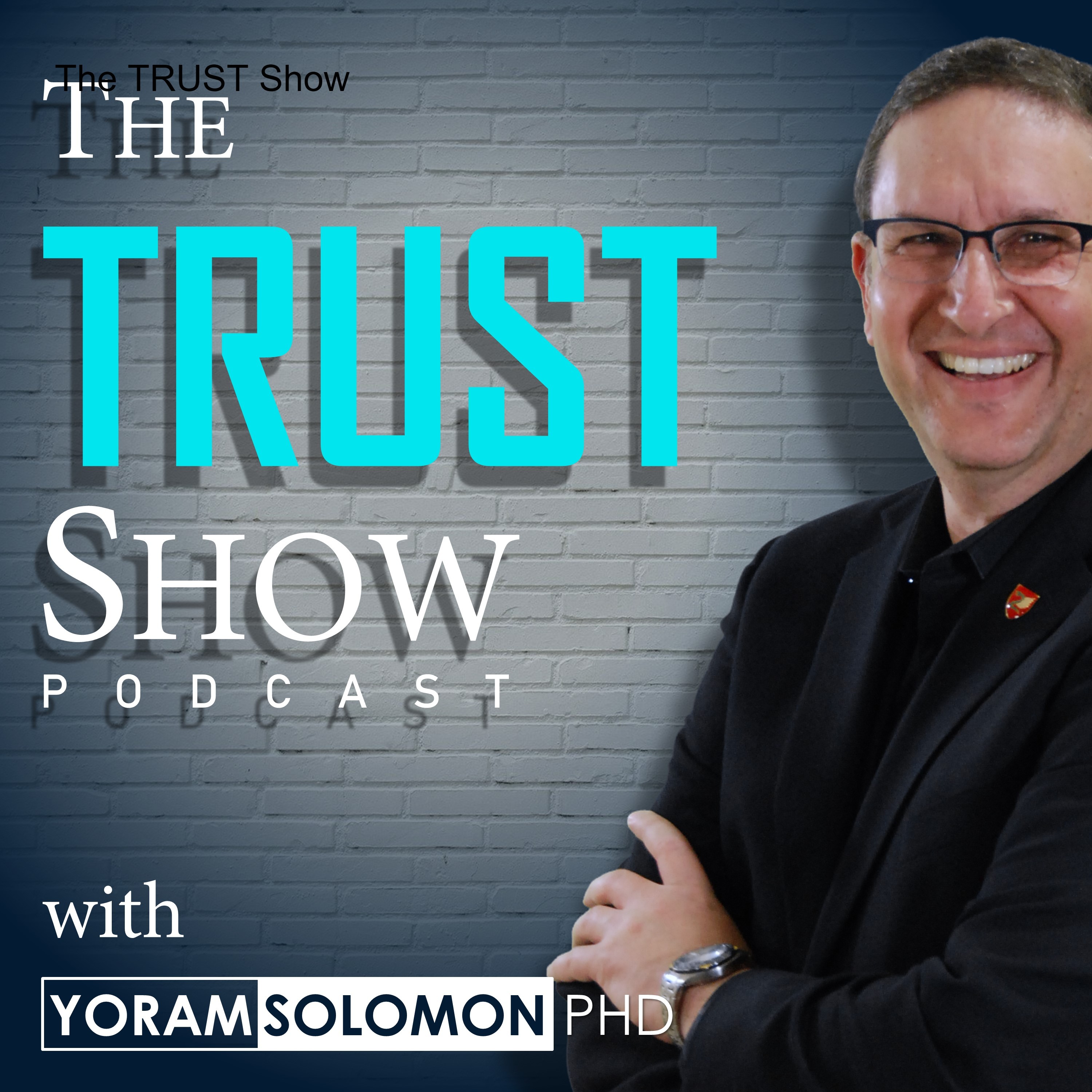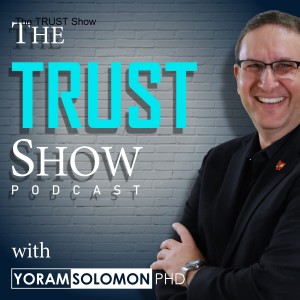
16.5K
Downloads
194
Episodes
Trust is not what you think it is. It is not absolute or universal. Trust is relative. The same behavior that would cause one person to trust you could cause another person to distrust you. The level of trust someone has in you is the product of their trustfulness (their willingness to trust other people) and your trustworthiness. There is almost (I said ALMOST) nothing you can do about the former, and everything you can do about the latter. Because of that, you must evaluate your own trustworthiness one relationship at a time, separately. Odds are, though, that the same behaviors that are holding you back from being more trusted in one relationship are holding you back from being more trusted in other relationships. Welcome to The Trust Show. I’m your host, Yoram Solomon, a top 10 trust expert and researcher, the author of the book of trust, and the creator of the Trust Habits® workshop that helps people and organizations form new habits that change old behaviors, build trust, and transform organizations. In this educational podcast, I will challenge you to think differently about trust, through the 8 laws of trust and the 6 components of trustworthiness. I will share my own stories, experiences of others, trust research, and sometimes, reflect on a news item. And through those, I will show you how to build trust, be trusted, and know who to trust. Because the answer to this question will have the biggest impact on your personal and professional, success or failure: can you be trusted?
Episodes

Tuesday Mar 11, 2025
S16E10: Do Your Customers Trust You? The Relative Trust Model (Part I)
Tuesday Mar 11, 2025
Tuesday Mar 11, 2025
Do your customers truly trust you, or do you just think they do? In this episode, I read Chapter 9 of The Book of TRUST, where we explore the surprising trust gap between businesses and their customers. Then, I dive into the first half of Chapter 10, introducing the Relative Trust Model and focusing on the first three components that shape trust before an interaction even begins: Competence, Personality Compatibility, and Symmetry.
How do customers judge your expertise? Does personality compatibility affect trust? And why does fairness in your relationship matter? Tune in to find out—and don’t miss the next episode, where I’ll cover the remaining components of the model and discuss the impact of "what you do" during an interaction.

No comments yet. Be the first to say something!